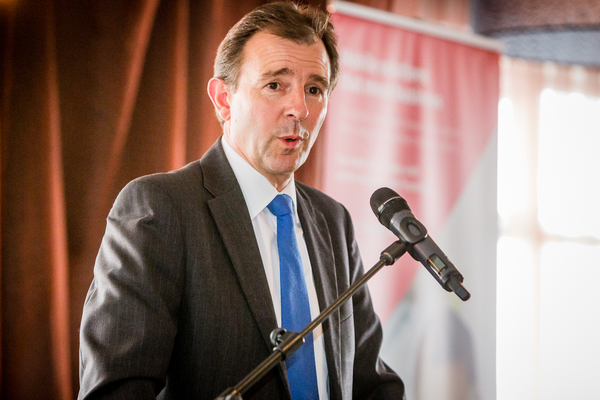

The States would have to rewrite their key finance rules, if the Island decides to borrow the money for a student loans scheme, on top of £400million for a new hospital and £250million for social housing, a scrutiny panel has heard.
Last week a major government review into higher education funding warned that many families were unable to meet the costs of sending their children to university, and suggested a loans scheme could bridge the gap.
But Treasury and Resources Minister Alan Maclean said yesterday that if a loans scheme is to be set up and funded by borrowing, the Public Finances Law would have to be changed to increase the amount the States are allowed to borrow, if they also agree to borrow £400 million for the new hospital - In total, a 40 year bond for that sum will probably cost the Island more than £820million.
Previously, the States agreed to borrow £250million to fund new social housing.
His comments came during a Corporate Services Scrutiny Panel quizzing over funding for the new hospital by members Sarah Ferguson, Deputy Kevin Lewis, Constable Chris Taylor and Chair, Deputy John Le Fondré.
The funding plan is currently to issue a bond of £400 million, which the Island would repay over the next 40 years, with the rest of the costs met from Jersey's reserves. Ministers are hoping to use the reserves' annual interest to pay off the bond.

Pictured: Treasury and Resources Minister Alan Maclean, who gave evidence at the hearing.
During the hearing, the panel queried what impact the issuing of such a large bond would have on Jersey's AA- Standard and Poor credit rating.
The Minister maintained, however, that it was unlikely to be affected, given the borrowing would only increase Jersey's debt to GDP ratio to around 16% - which he said was still low compared to other nations.
With the hospital funding plan reliant on the Strategic Reserve, Deputy Lewis expressed concern over the effects of a sudden economic crash - but Senator Maclean stated that the States investment strategy was a long-term plan, which has seen an average 4% return over RPI over the past 40 years despite serious global financial problems such as the dotcom bubble.
States Treasurer Richard Bell added that the department had modelled various more "extreme" scenarios, but that they had no reason to believe that the hospital wouldn't be repaid by 2057, based on an assumption of 2% returns above RPI.
Worries were also raised that the hospital's lifespan would be over before the borrowing repaid, but Senator Maclean said that the two were "aligned".
In his closing questions, Deputy John Le Fondré asked for assurance that the £466 million figure was a "worst case scenario" and that in reality it would come in under this figure, given the over £70 million budgeted for contingency costs.
Senator Maclean responded: "[It is] a prudent cost put in at the early stages when there were a larger number of uncertainties and a substantial contingency figure."
He said that Treasury's view was that "contingencies are not there to be spent" apart from in "exceptional circumstances."
Comments
Comments on this story express the views of the commentator only, not Bailiwick Publishing. We are unable to guarantee the accuracy of any of those comments.